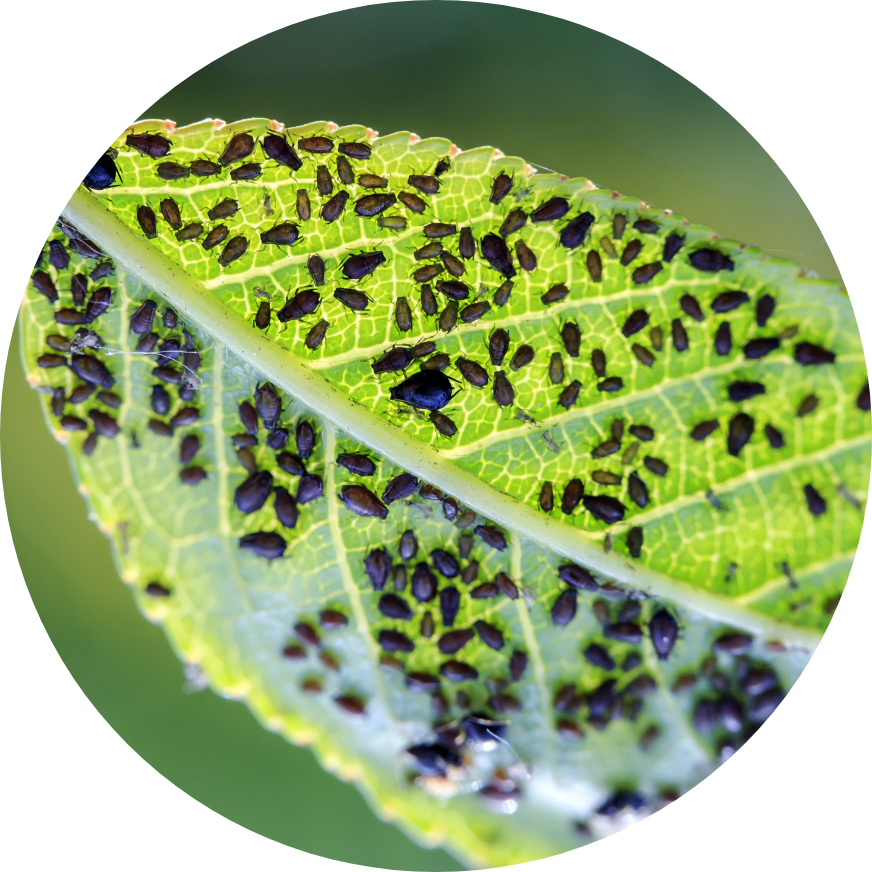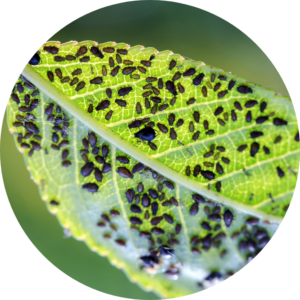Aphids

Aphids are small, soft-bodied, pear-shaped insects. They produce asexually, with adult females capable of giving birth to up to 12 offspring a day, and exist in a variety of colors including green, brown, pink, and more. The aphids possess long mouthparts called stylets, which are used to suck fluids out of soft plant matter, such as leaves and stems.
After drinking the plant juices, aphids excrete the sugars, creating a substance called honeydew. Honeydew deposits can lead to a fungal growth called sooty mold, which, while not particularly damaging, can adversely affect the appearance of a tree.
Aphids in small numbers are unlikely to cause any significant damage to a tree; however, if the population is allowed to grow and environmental conditions are favorable, the negative effect of a large infestation is considerable. Many aphid species tend to cause the greatest amount of damage in late spring, when temperatures are moderate.
The use of earth-friendly insecticides such as neem, cottonseed or canola oil, or petroleum-based horticultural oils and insecticidal soap, can be more effective ways to get rid of aphid populations than aggressive chemical treatments. This is due to the fact that the latter can actually eliminate some of the aphid’s naturally occurring predators, such as parasitic wasps and lady beetles.
Spraying aphids with insecticide is also a common practice that has proven to be successful, while soil and trunk injections have also produced excellent results. An even simpler method for aphid control is syringing; by spraying trees with a forceful jet of water from a garden hose, pests can be dislodged, making it harder for them to reach damaging population levels.

